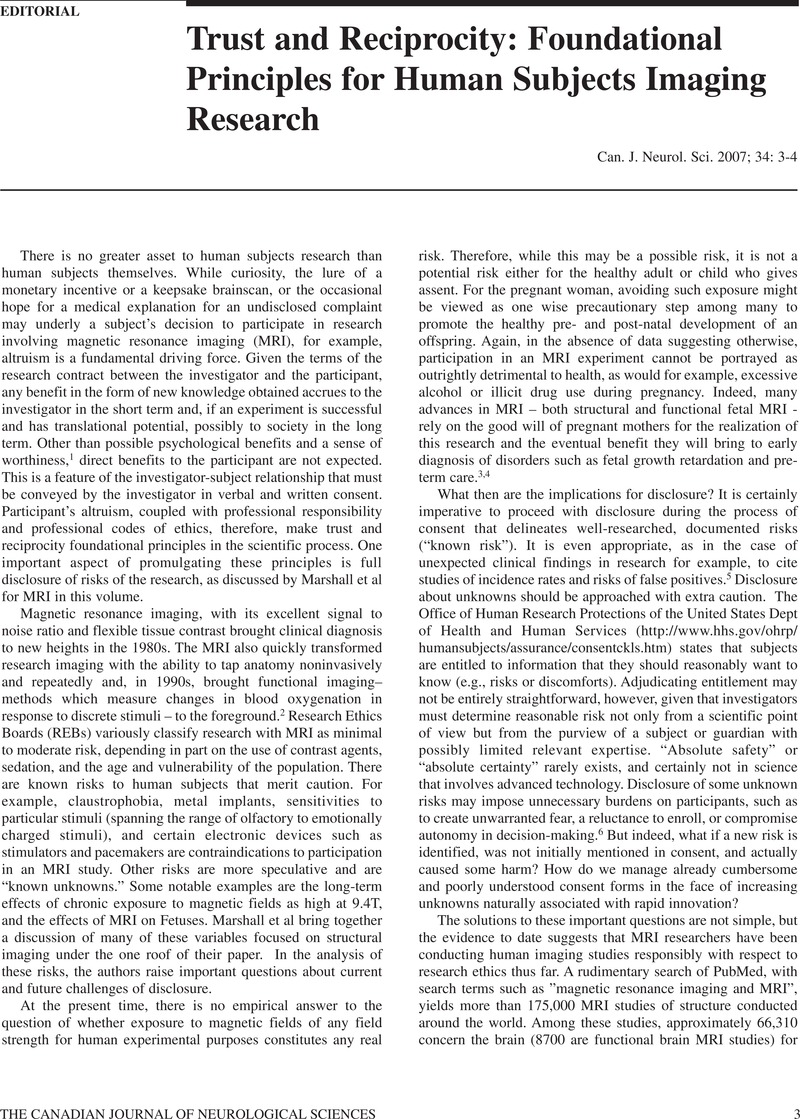Crossref Citations
This article has been cited by the following publications. This list is generated based on data provided by Crossref.
Illes, Judy
and
Chin, Vivian Nora
2008.
Bridging Philosophical and Practical Implications of Incidental Findings in Brain Research.
Journal of Law, Medicine & Ethics,
Vol. 36,
Issue. 2,
p.
298.
Fins∗, Joseph J.
Illes∗, Judy
Bernat∗∗, James L.
Hirsch∗∗, Joy
Laureys∗∗, Steven
and
Murphy∗∗, Emily
2008.
Neuroimaging and Disorders of Consciousness: Envisioning an Ethical Research Agenda.
The American Journal of Bioethics,
Vol. 8,
Issue. 9,
p.
3.
Illes, Judy
Moser, Mary Anne
McCormick, Jennifer B.
Racine, Eric
Blakeslee, Sandra
Caplan, Arthur
Hayden, Erika Check
Ingram, Jay
Lohwater, Tiffany
McKnight, Peter
Nicholson, Christie
Phillips, Anthony
Sauvé, Kevin D.
Snell, Elaine
and
Weiss, Samuel
2010.
Neurotalk: improving the communication of neuroscience research.
Nature Reviews Neuroscience,
Vol. 11,
Issue. 1,
p.
61.
Marshall, Jennifer
2010.
Disclosure of Unknown Harms in Magnetic Resonance Imaging Research.
Accountability in Research,
Vol. 17,
Issue. 2,
p.
67.
Peters, Kevin R.
Lynn Beattie, B.
Feldman, Howard H.
and
Illes, Judy
2013.
A conceptual framework and ethics analysis for prevention trials of Alzheimer Disease.
Progress in Neurobiology,
Vol. 110,
Issue. ,
p.
114.





